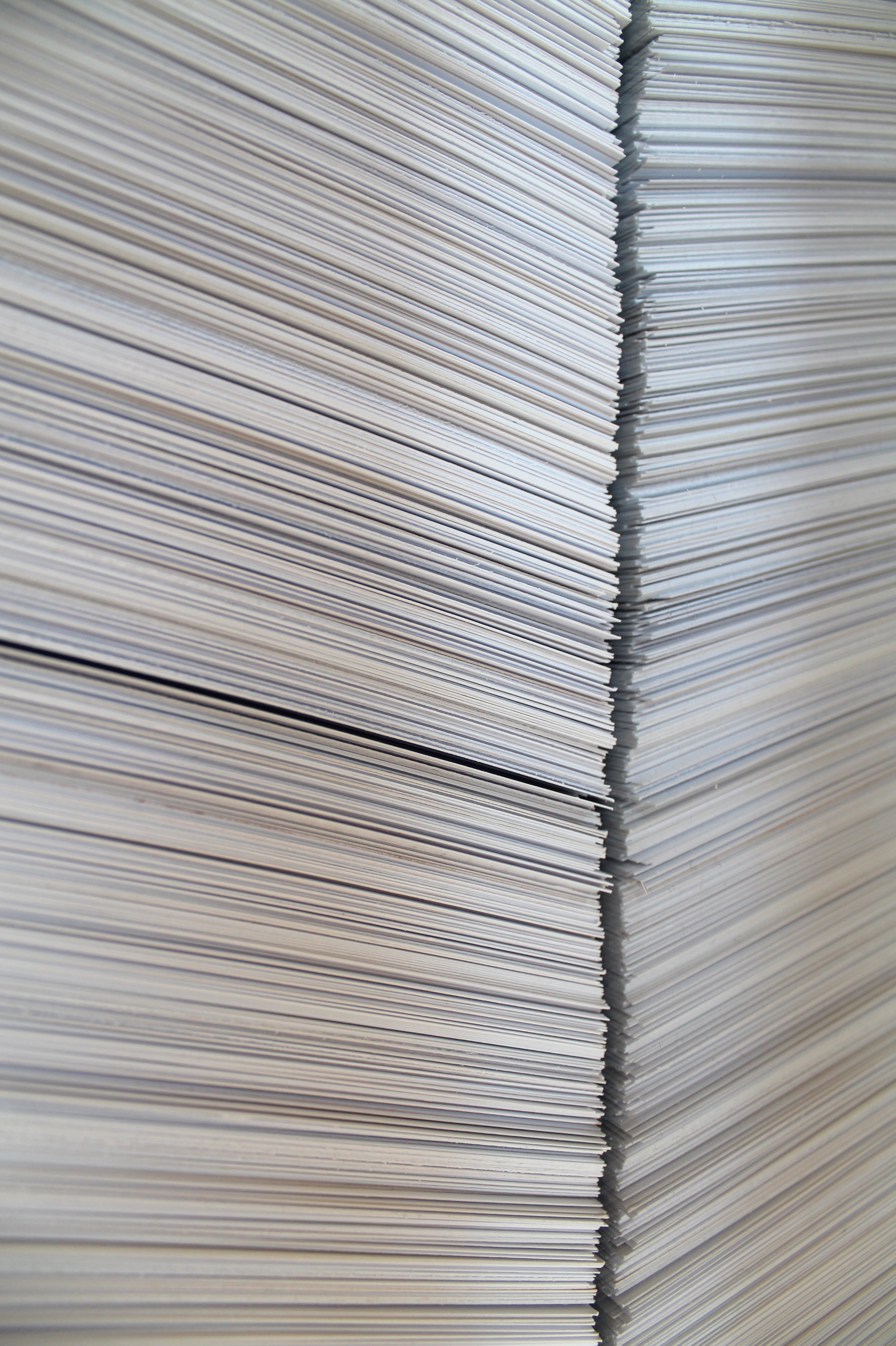Art is merely a copy, said Plato, 2019
Installation of screen prints on card and mirror Perspex.
Alicia Eccleston’s diverse practice incorporates printmaking, sculpture, installation, curation and performance, to set-up or inform active discussions involving contemporary art and its accessibility, the role of the artist and Institutional Critique. By examining and attempting to alter the art world and its institutions through her practice, she evaluates her individual position within this context whilst also creating an openly interpretative platform for the viewer to participate in various conversations.
In Alicia’s earlier works this was achieved solely through the process of screen printing and the use of text and language as communicative tools. However, more recently, it is through the combination of screen printing and the meticulous curation of precarious conceptual installations and sculptures which firmly hosts these discussions, where the simple and controlled use of materials provides a balanced and open arena to discuss and debate. It is both the unique quality and time-consuming process of screen-printing which interests Alicia and informs her practice, for her although the exhibited work may appear minimal, it is fundamental that the process of making mirrors the labour of being an artist- reflecting further conversations not only in her physical work but also in her process of thinking about and making art.
The use of minimal compositions is also in direct conversation with contemporary art and its accessibility, the comical quality to her practice directly juxtaposes and balances out the harsh compositions of her print-making sculptures. In ‘Accessibility statement, Arts Council England- Please take a copy (a)’ (2019) these ideas are presented in the form of a 9ft tall stack of A4 copier paper which attempts to embody the Arts Council England and their claim to make art and culture accessible to all. Precariously it towers over its audience, out of reach to its viewers. Whereas, in ‘Accessibility statement, Arts Council England- Please take a copy (b)’ (2019), a performative gesture results in the out of reach prints being made accessible to its audience, demonstrating how action is required to ensure that art is made available to and enjoyed by, everyone, everywhere. Dramatic in their execution, these two works would be particularly understood by those working within these institutions but also suggests that through humour and performance conceptual art could be made more accessible to a universal audience.

